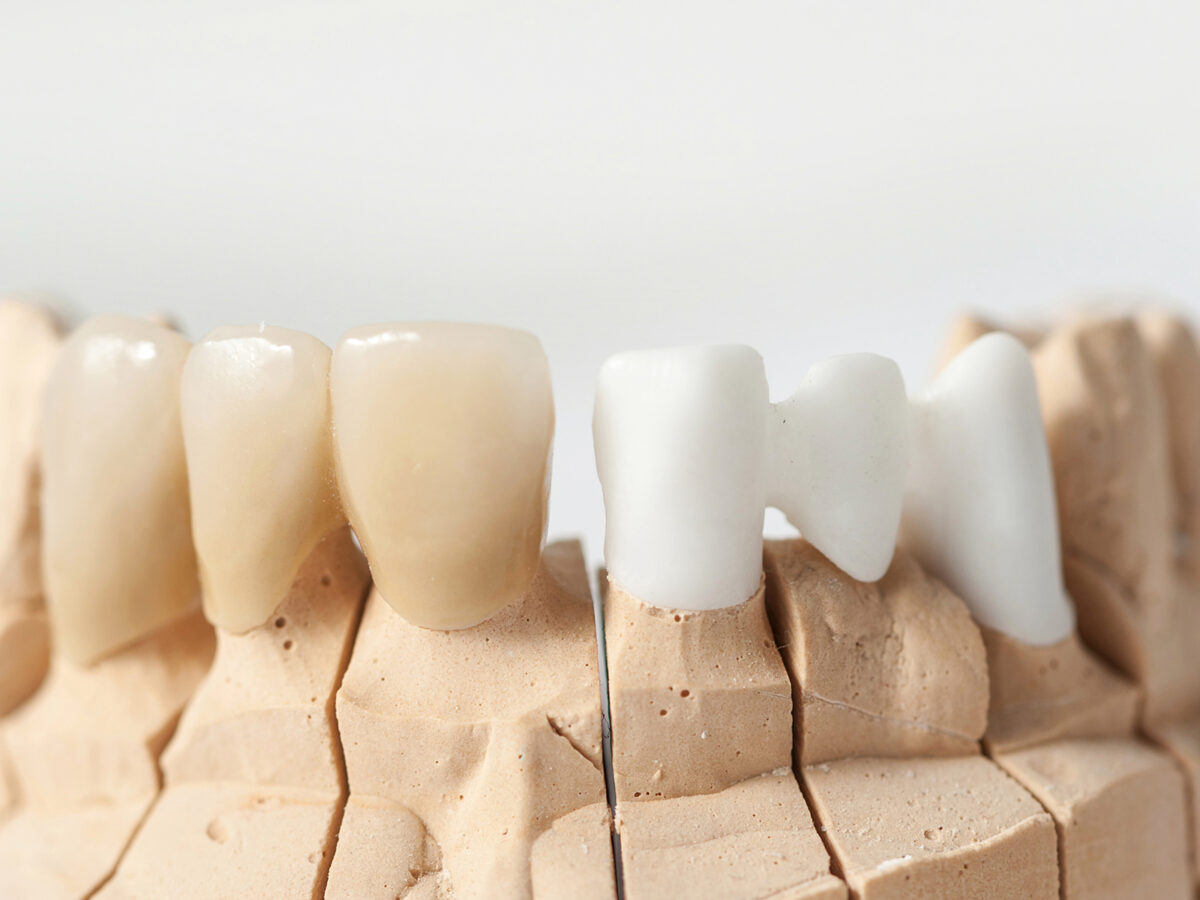Blog
Dental hygiene tips for healthy teeth & gums

The Benefits of A Dental Bridge
The Benefits of A Dental Bridge
The loss of teeth can pose severe problems for oral hygiene and self-confidence. Nonetheless, modern dentistry has provided several options for replacing teeth and restoring both function and aesthetics. Dental bridges are one such treatment option. The oral health, general health, and self-confidence of the patient are all improved by dental bridges, which we will discuss in this article.
Top Benefits of Dental Bridge
- Dental bridges can help restore oral functions and improve oral health. When teeth are lost, it affects the ability to speak, chew, and bite. The gaps can be effectively filled by dental bridges, made up of prosthetic teeth (pontics) and supported by healthy teeth next to the gap or dental implants. Dental bridges improve digestion and aid in maintaining a balanced diet by restoring the ability to chew and bite properly.
- Additionally, dental bridges prevent the shifting of neighboring teeth to fill the gaps created by missing teeth. This helps prevent problems with your bite, jaw alignment, and temporomandibular joints (TMJ) by keeping your teeth in natural positions.
- Improved Appearance and Confidence: Losing teeth can significantly influence a person’s sense of self-worth and confidence, which in turn can harm their relationships with others and their general happiness in life. Dental bridges can remedy cosmetic issues with missing teeth. Dental bridges can replace one or more missing teeth with artificial prosthetics called pontics that look, feel, and function just like natural teeth.
- Dental bridges let people smile, speak, and laugh again without feeling self-conscious about missing teeth. The confidence you gain from your newfound good looks can be applied in your personal and professional life.
- Longevity and sturdiness are two qualities that are intentionally built into dental bridges. They can last many years with proper maintenance and periodic dental exams. Dental bridges, made from materials like porcelain or ceramic, are durable and won’t discolor with time, so your smile will always look great.
Should you get a Dental Bridge?
Dental bridges are fixed prosthetic devices, so they can’t be lost or stolen, and there’s no need to remove them for cleaning and maintenance. Talking to a dentist about getting dental bridges is essential to get the best advice and determine if this treatment is proper for you. A dental bridge is a permanent solution to missing teeth that can restore your smile and self-esteem.
Once the bridge is in place, patients can eat whatever they like without worrying about the food slipping or hurting their bridge.
- Additionally, dental bridges provide a secure and hassle-free replacement for lost teeth. Because they are created to order, they will fit the patient’s mouth perfectly. It removes the discomfort of removable dentures and allows for more natural speech patterns.
- Getting a dental bridge is a simple and fast procedure that requires no cutting or drilling. The teeth on each side of the gap (abutment teeth) are shaped to accept the bridge after the patient’s dental health has been thoroughly assessed.
- A tiny bit of enamel must be removed to make room for the bridge. After that, an accurate impression is used as a template for creating the dental bridge.
- A temporary bridge safeguards the abutment teeth while the permanent bridge is being made in a dental laboratory. The restoration is complete when the bridge is attached to the abutment teeth or implants.
Conclusion
There are many advantages to using dental bridges to replace missing teeth. They help people feel better about themselves by fixing their smiles and restoring their oral health. Dental bridges have the added benefits of longevity, ease of use, and comfort. Dental bridges are essential to maintaining good oral health because they mitigate tooth loss’s emotional and physiological effects.


